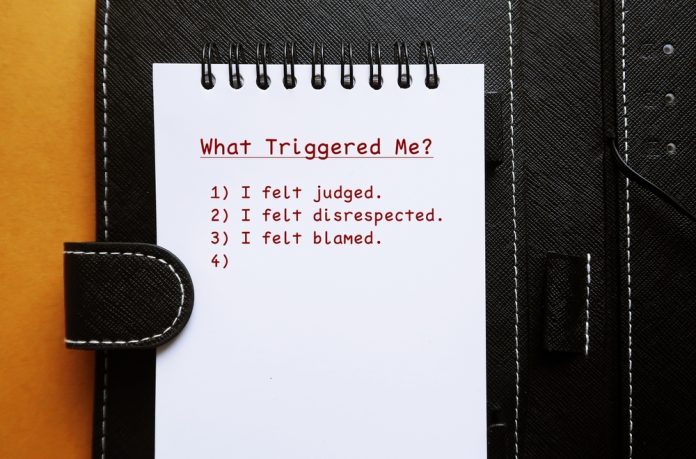Are you tired of feeling overwhelmed by anxiety? Do you want to take control of your mental well-being and live a more peaceful, fulfilling life? If so, you’ve come to the right place. In this article, we will explore the 16 most common anxiety triggers and provide you with effective strategies to overcome them.
Anxiety is a pervasive mental health issue that affects millions of people worldwide. It can be triggered by various factors, including stress, traumatic events, social situations, health concerns, and more. By understanding these triggers and learning how to manage them, you can significantly reduce your anxiety levels and improve your overall quality of life.
Understanding Anxiety Triggers
To effectively manage your anxiety, it’s crucial to understand what triggers it in the first place. Anxiety triggers are specific events, situations, or thoughts that lead to feelings of anxiety and distress. These triggers can vary from person to person, but there are some common ones that many individuals experience.
Common Anxiety Triggers
- Stress: High levels of stress can trigger anxiety. Everyday stressors such as work deadlines, financial worries, or relationship problems can contribute to feelings of anxiety.
- Traumatic Events: Experiencing or witnessing a traumatic event, such as an accident, natural disaster, or violence, can lead to anxiety symptoms.
- Social Situations: Social anxiety disorder is characterized by an intense fear of social situations. Parties, public speaking, or even small gatherings can trigger anxiety for individuals with this condition.
- Health Concerns: Chronic illnesses, debilitating conditions, or the fear of developing a serious illness can all be anxiety triggers.
- Phobias: Specific phobias, such as fear of heights, spiders, or flying, can cause intense anxiety when confronted with the object of fear.
- Crowds: Being in crowded places, such as malls or concerts, can be overwhelming and trigger anxiety for some individuals.
- Change: Major life changes, such as moving, starting a new job, or going through a divorce, can be anxiety-inducing due to the uncertainty and disruption they bring.
- Perfectionism: Setting unrealistically high standards for oneself and fearing failure or making mistakes can lead to chronic anxiety.
- Financial Worries: Money problems, debt, or financial instability can cause significant anxiety and stress.
- Conflict: Conflict in relationships, whether it’s with a partner, family member, or colleague, can trigger anxiety and emotional distress.
- Lack of Control: Feeling out of control or unable to influence outcomes can contribute to anxiety.
- Media Overload: Constant exposure to negative news, social media, and disturbing images can increase anxiety levels.
- Panic Attacks: Experiencing a panic attack can create fear of future attacks and become a trigger for anxiety.
- Lack of Sleep: Sleep deprivation can make you more susceptible to anxiety triggers and worsen existing anxiety.
- Caffeine and Stimulants: Consuming excessive amounts of caffeine, energy drinks, or other stimulants can increase anxiety levels.
- Negative Thinking Patterns: Habitual negative thinking, catastrophising, or expecting the worst can keep anxiety levels high.
The Impact of Anxiety Triggers on Mental Health
Anxiety triggers can have a profound impact on your mental health and overall well-being. They can lead to a range of symptoms, including excessive worry, restlessness, irritability, difficulty concentrating, muscle tension, and sleep disturbances. Over time, if left unaddressed, chronic anxiety can interfere with daily functioning, relationships, and overall quality of life.
Recognising Your Own Anxiety Triggers
To effectively manage your anxiety, it’s essential to recognize your individual triggers. Take some time to reflect on situations or events that consistently bring about feelings of anxiety. Keep a journal or use a mobile app to track your triggers and the resulting anxiety symptoms. By identifying patterns, you can develop strategies to overcome and manage these triggers effectively.
Strategies to Overcome Anxiety Triggers
Now that you have a better understanding of anxiety triggers, let’s explore some effective strategies to overcome them. Remember, what works for one person may not work for another, so it’s essential to find the strategies that resonate with you and your unique needs.
Breathing Exercises and Relaxation Techniques
Deep breathing exercises and relaxation techniques can help calm the mind and reduce anxiety. Practice diaphragmatic breathing, where you inhale deeply through your nose, allowing your abdomen to expand, and exhale slowly through your mouth. Incorporate relaxation techniques such as progressive muscle relaxation, guided imagery, or mindfulness meditation into your daily routine to manage anxiety triggers effectively.
Cognitive-Behavioral Therapy for Managing Anxiety Triggers
Cognitive-Behavioral Therapy (CBT) is a highly effective therapeutic approach for managing anxiety triggers. CBT helps you identify and challenge negative thought patterns, replace them with more positive and realistic ones, and develop healthy coping mechanisms. Consider working with a trained therapist who specializes in anxiety disorders to receive personalized CBT treatment.
Seeking Support from Loved Ones and Professionals
Having a strong support system is crucial when dealing with anxiety triggers. Reach out to trusted friends, family members, or support groups who can offer understanding, empathy, and guidance. Professional help, such as therapy or counseling, can also provide invaluable support and guidance in managing anxiety triggers.
Lifestyle Changes to Reduce Anxiety Triggers
Making certain lifestyle changes can significantly reduce anxiety triggers. Prioritise self-care by engaging in activities you enjoy, practicing regular exercise, getting enough sleep, and maintaining a healthy diet. Avoid excessive caffeine and alcohol consumption, as they can exacerbate anxiety symptoms. Establish healthy boundaries, learn stress management techniques, and practice relaxation exercises to create a more balanced and anxiety-free life.
Conclusion: Taking Control of Your Anxiety Triggers
Don’t let anxiety control you any longer. By understanding the common anxiety triggers and implementing effective strategies, you can regain control of your mental well-being. Remember, managing anxiety is a journey that requires patience, self-compassion, and perseverance. Start your journey towards freedom and inner peace today by uncovering your anxiety triggers and learning how to overcome them. With the right tools and support, you can conquer anxiety and live a more peaceful, fulfilling life.








